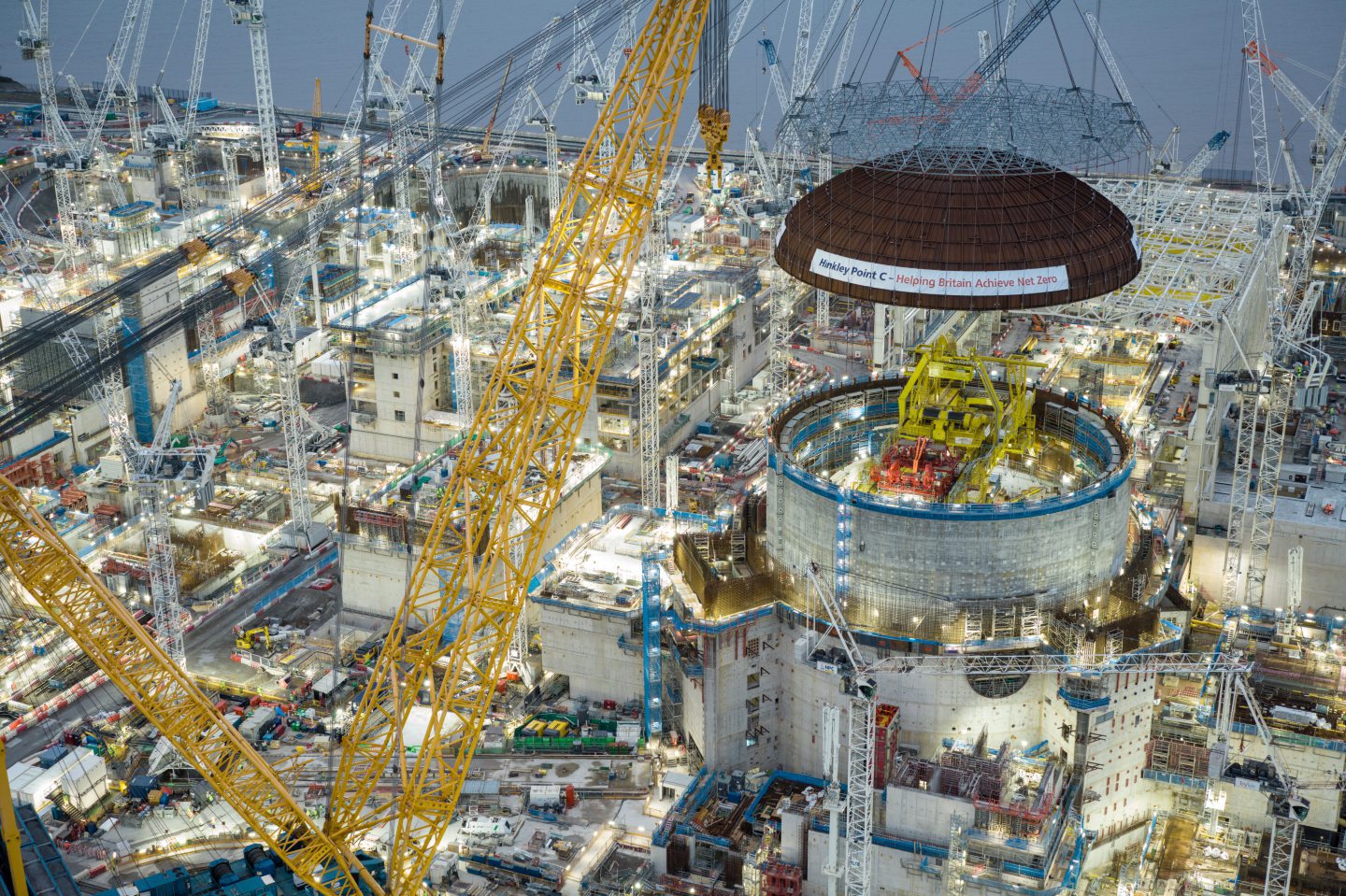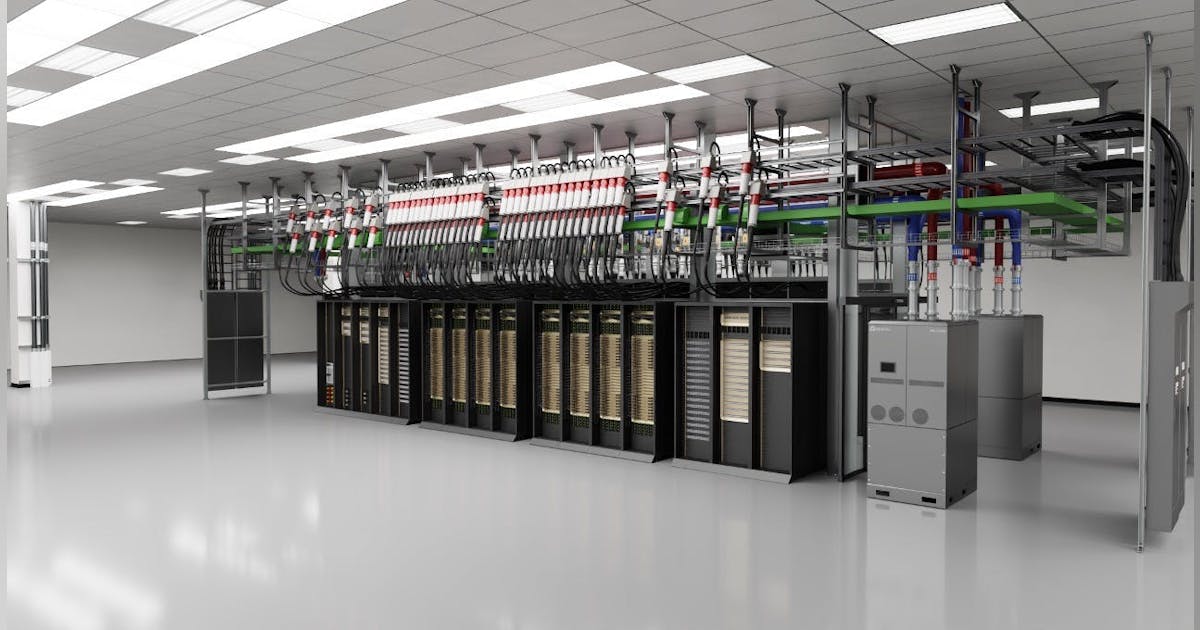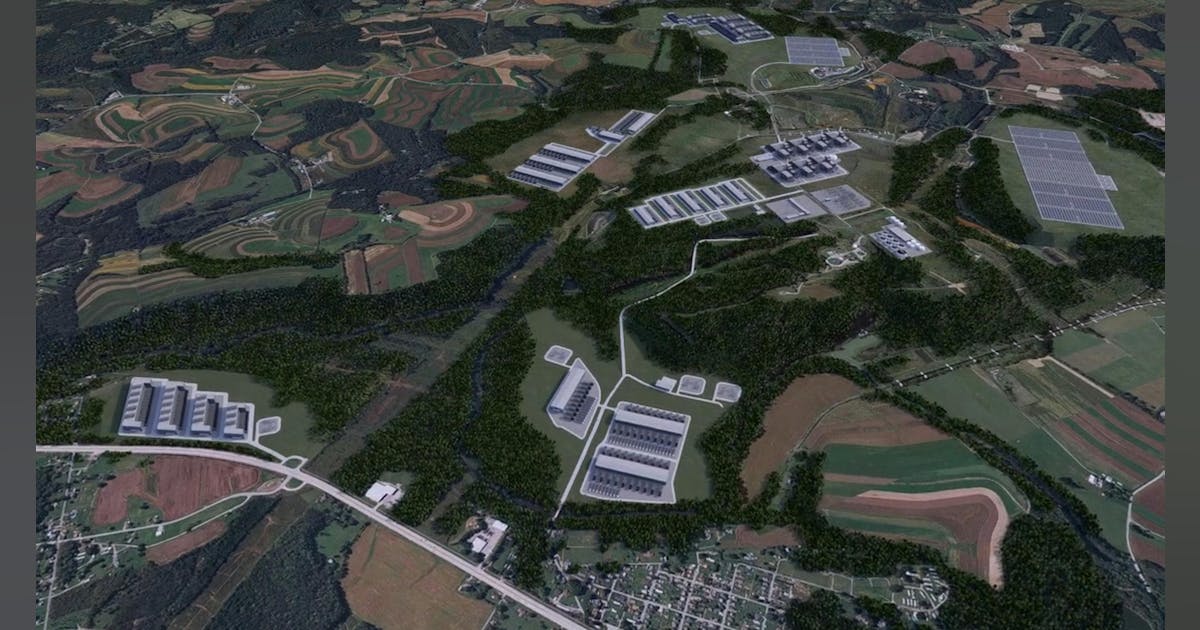Trade body Energy UK is urging the government to “seize the moment and unleash the potential of nuclear energy” as part of efforts to decarbonise the country’s electricity.
Energy UK said the nuclear industry in the UK is at a “pivotal time”, with four of the country’s five power plants nearing the end of their operational lives.
At the same time, French firm EDF is building a reactor at Hinkley Point C, which will be the first new nuclear power plant in the UK for over 30 years when complete.
A final investment decision on the Sizewell C reactor is also due in the spring, alongside further updates on the UK government’s small modular reactor (SMR) competition.
State-owned Great British Nuclear (GBN) is overseeing the SMR contest, with four companies developing reactor designs that could be operational by the mid-2030s.
UK needs to expand nuclear, Energy UK says
In a report, Energy UK said the nuclear sector will require further expansion to meet a forecast increase in electricity demand.
The trade body said nuclear can provide a “stable source of clean power” to complement increasing wind and solar generation.
The industry can also support economic growth and provide jobs in the regions where plants are located, Energy UK said.
The UK nuclear sector currently employs around 64,000 people, while indirectly supporting a further 210,000.
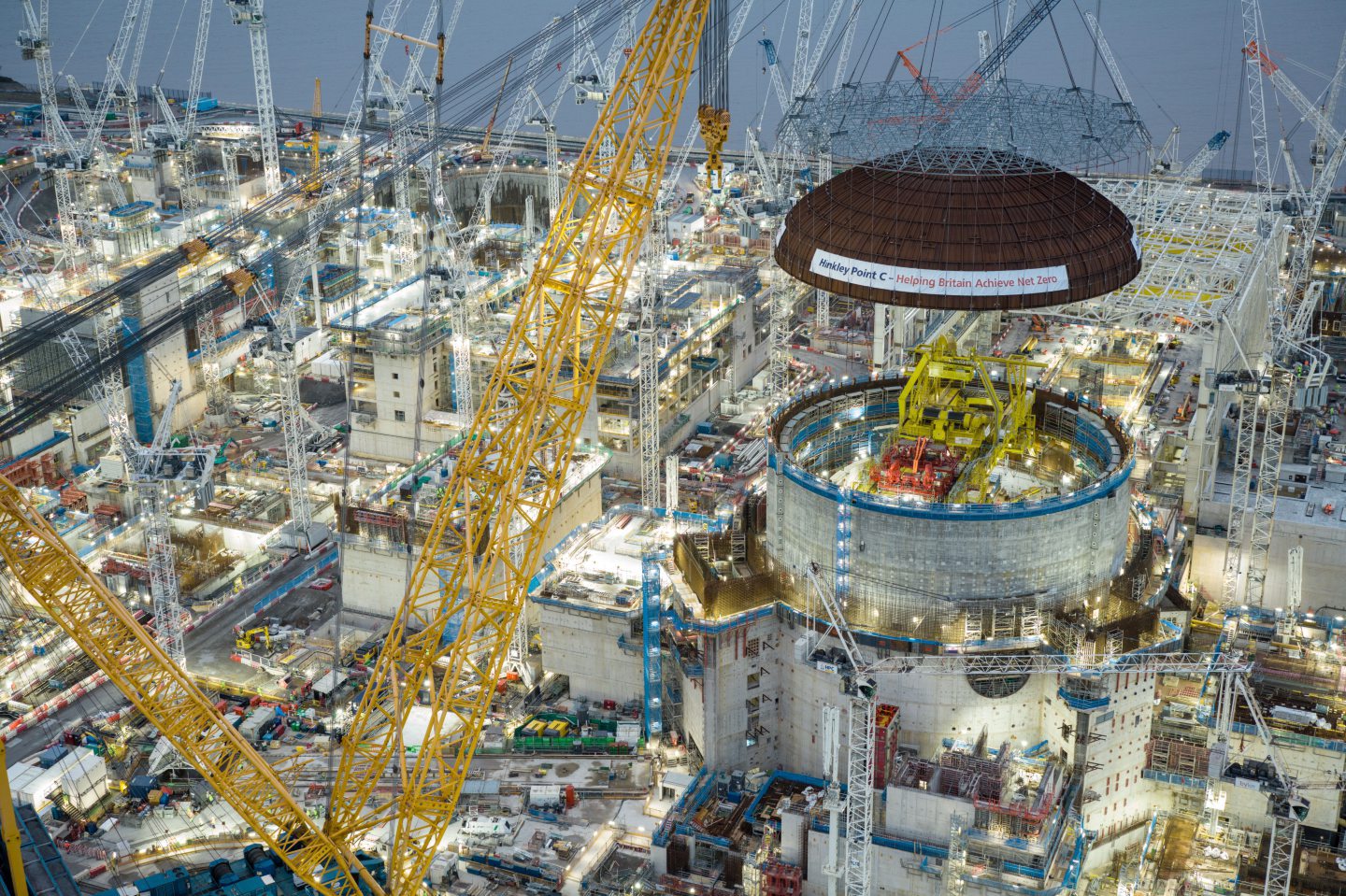 © Supplied by Altrad
© Supplied by AltradThe Hinkley Point C project alone supports nearly 23,500 jobs, with £5.3bn spent across businesses in the south west of England.
According to the report, building Sizewell C could lead to the creation of 70,000 jobs and a £4.4bn boost to the UK construction sector in the east of England.
Energy UK said the UK should utilise the “highly skilled workforce and active supply chain” developed through the construction of Hinkley C by making a decision on Sizewell C.
Maintaining the nuclear workforce will also provide a potential boost to the rollout of SMRs, which the industry claims can be built more quickly.
The UK nuclear industry is also working to commercialise fusion energy, though there are continued doubts as to the technology’s relevance to the energy transition.
UK should ‘seize’ nuclear opportunity
Energy UK director of policy and advocacy Adam Berman said nuclear will play a “crucial role” in powering the UK economy.
“It can also provide a host of economic benefits, not just from building the stations themselves, but by developing expertise and experience in new technologies and being able to meet the needs of businesses looking to invest and locate in the country,” he said.
“But it is imperative that we seize this opportunity at a pivotal time for the industry as we await vital decisions that will shape the future of the nuclear industry and the role it will play over the coming decades.
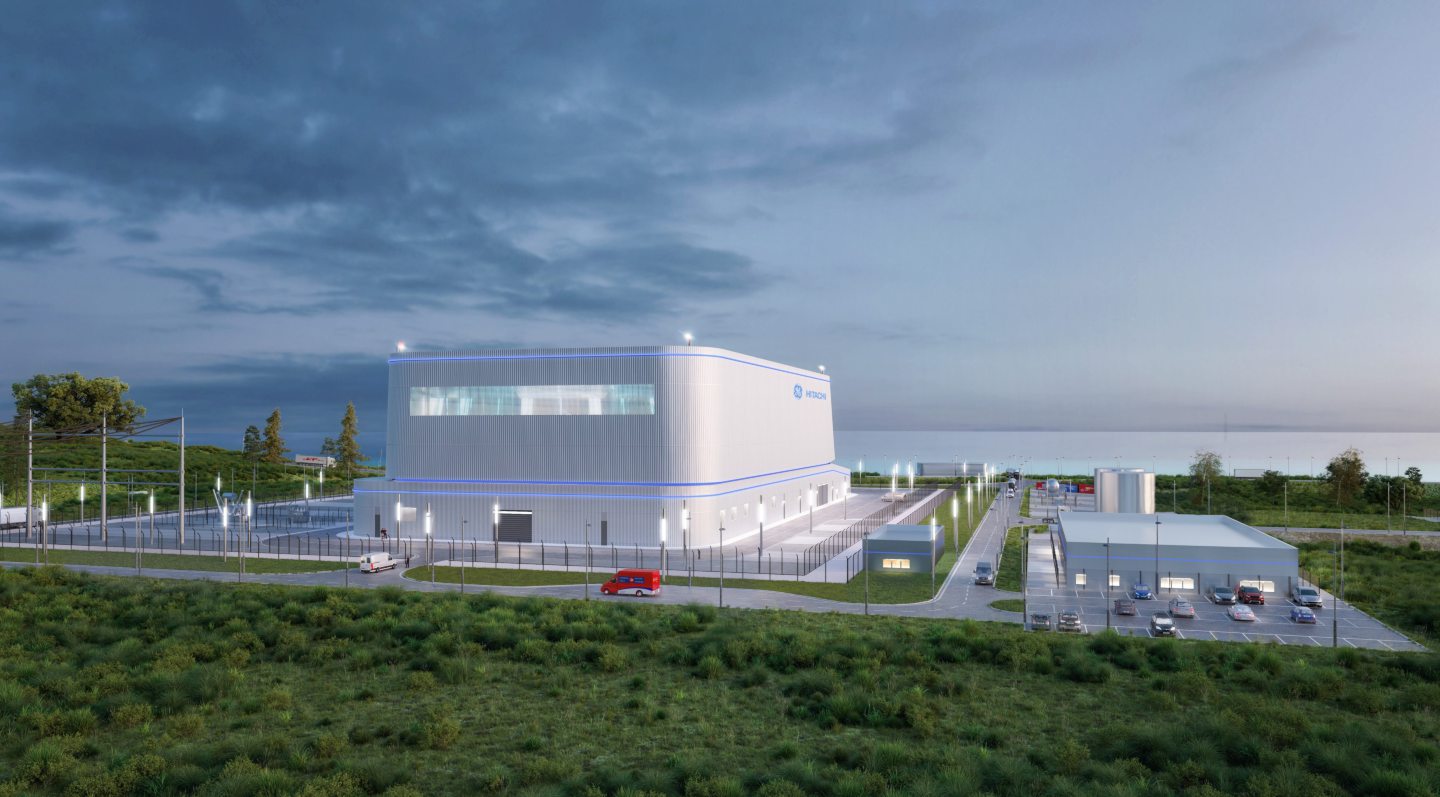 © Supplied by GE Hitachi Nuclear E
© Supplied by GE Hitachi Nuclear E“Our country has a proud history in this field but it’s been 30 years since the last new nuclear power station came into operation and it’s high time for the country to reclaim its role as a world leader and pioneer.”
The world has seen renewed interest in nuclear energy in recent years, partly driven by tech companies such as Microsoft, Amazon and Google.
With communities in northern England and Wales potentially on the cusp of billions of pounds in investment, there are concerns Scotland may miss out due to its longstanding political opposition to nuclear energy.
But many industry and climate experts remain unconvinced of the benefits from investing in nuclear energy.
Alongside cost concerns and lengthy construction timelines, researchers around the world have highlighted risks around nuclear waste and climate vulnerability.
Climate activists have also warned nuclear energy acts as a hurdle to the development of renewable energy, calling it a “dangerous distraction“.





